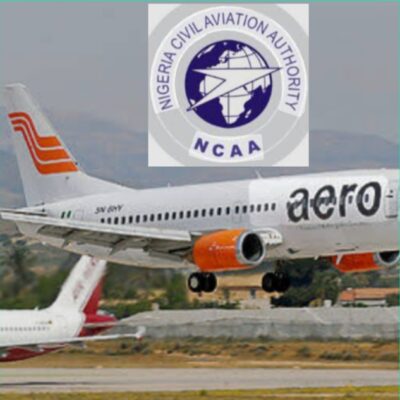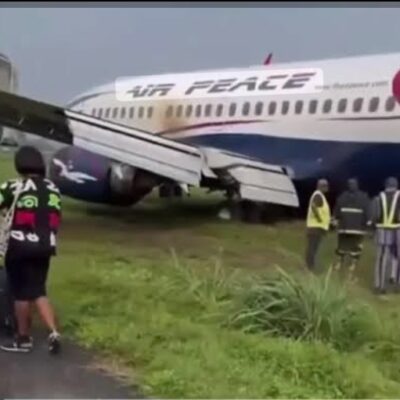
BY OLAPEJU OLUBI
Nigerian aviation industry stakeholders have raised concerns over Nigeria’s new tax reforms, warning that the measures could amount to double taxation and worsen the financial strain on operators.
At a recent business webinar hosted by Aviation and Allied Business Journal in partnership with the Nigeria Revenue Service (NRS), stakeholders expressed dismay over provisions that remove long-standing Value Added Tax (VAT) exemptions on aviation assets such as aircraft, engines, spare parts, and transportation services.
The new rules are expected to take effect next year.
Speaking on the implications of the reform, Mrs. Nkechi Umegakwe, an Assistant Director at the NRS, while stating that the January 1, 2026 implementation date remains sacrosanct, explained that the changes are designed to align aviation with the tax treatment of other sectors.
“Nigerian companies engaged in airline transportation business and other allied companies in the aviation sector are charged to tax like every other Nigerian company,” she said.
Umegakwe stressed that VAT remains a consumption tax to be borne by passengers and service recipients. She further noted that while VAT will apply, “airlines can recover VAT paid on services consumed in their operations.”
Her explanation did little to calm industry players. Representatives of global and local aviation bodies argued that the policy could distort Nigeria’s compliance with international aviation treaties and further erode competitiveness.
Dr. Samson Fatokun, Area Manager for West and Central Africa at the International Air Transport Association (IATA), insisted that international air transport should not be subjected to such levies.
“Aviation is a global business. There are already different types of levies, taxes, and fees that operators pay both locally and internationally. Nigeria is a member of the International Civil Aviation Organisation (ICAO) and is subject to taxation rules established under ICAO treaties,” he said.
Fatokun also highlighted ECOWAS’ recent push to ease the cost of regional air travel. “ECOWAS is not introducing any supplementary tax on air passengers. Instead, it has adopted a regional strategy to reduce travel costs by eliminating non-compliant taxes and cutting airport passenger and security charges by 25 percent from January 1, 2026.
“Our own regulation contradicts this supplementary Act. Nigeria needs to harmonise its laws with international and regional commitments,” he advised.
Former Rector of the Nigerian College of Aviation Technology, Captain Samuel Caulcrick, was more blunt in his criticism. He said the reforms would undermine the industry’s primary revenue streams — Ticket Sales Charges (TSC) and Cargo Sales Charges (CSC).
“TSC and CSC are the backbone of aviation development in Nigeria. What this Act did was to tax them. This has choked the industry. It has choked freight businesses,” he lamented.
Caulcrick argued that taxing these charges amounts to double taxation. “TSC and CSC are already statutory contributions that fund aviation. To tax them again is to impose a second layer of tax on the same revenue. This is unsustainable,” he said, calling for repeal of the provisions.
Nkechi Onyenso, Managing Director of Pathfinders International Limited, echoed the concerns, urging the government to open broader consultations before implementation. “The impact on aviation and allied companies could be far-reaching.
There is a need for deeper engagement with stakeholders to ensure the reforms do not destabilise an already fragile industry,” she advised.
With the policy due to take effect next year, industry leaders warn that unless the government revisits the reforms, Nigeria risks higher ticket costs, reduced competitiveness, and a decline in air travel demand, outcomes that could stall growth in a sector critical to economic development.





